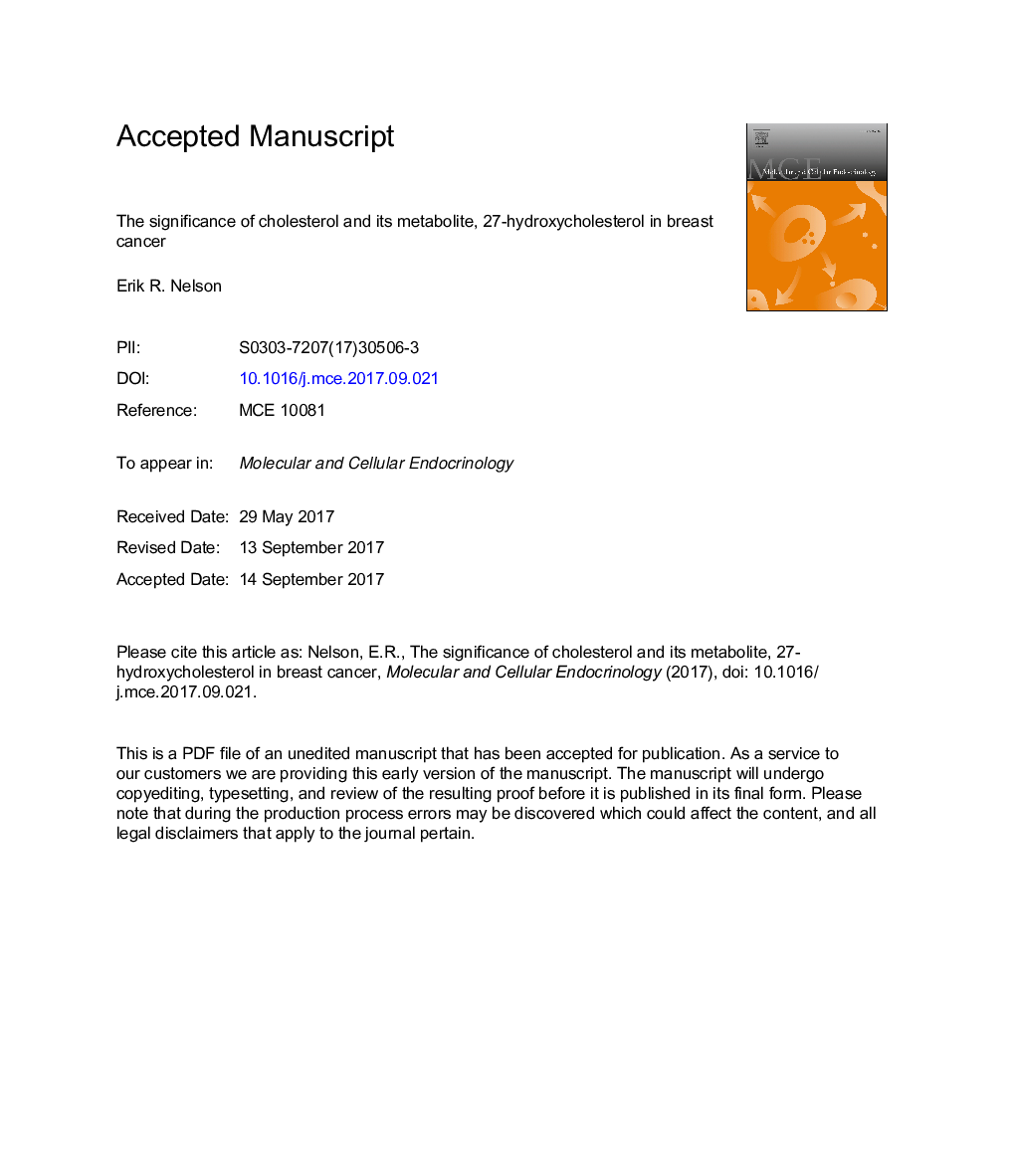| Article ID | Journal | Published Year | Pages | File Type |
|---|---|---|---|---|
| 8476472 | Molecular and Cellular Endocrinology | 2018 | 27 Pages |
Abstract
Although significant advances in the treatment of breast cancer have been made, in particular in the use of endocrine therapy, de novo and aquired resistance to therapy, and metastatic recurrence continue to be major clinical problems. Given the high prevalence of breast cancer, new life-style or chemotherapeutic approaches are required. In this regard, cholesterol has emerged as a risk factor for the onset of breast cancer, and elevated cholesterol is associated with a poor prognosis. While treatment with cholesterol lowering medication is not associated with breast cancer risk, it does appear to be protective against recurrence. Importantly, the cholesterol axis represents a potential target for both life-style and pharmacological intervention. This review will outline the clinical and preclinical data supporting a role for cholesterol in breast cancer pathophysiology. Specific focus is given to 27-hydroxycholesterol (27-OHC; (3β,25R)-Cholest-5-ene-3,26-diol)), a primary metabolite of cholesterol that has recently been defined as an endogenous Selective Estrogen Receptor Modulator. Future perspectives and directions are discussed.
Keywords
Related Topics
Life Sciences
Biochemistry, Genetics and Molecular Biology
Cell Biology
Authors
Erik R. Nelson,
